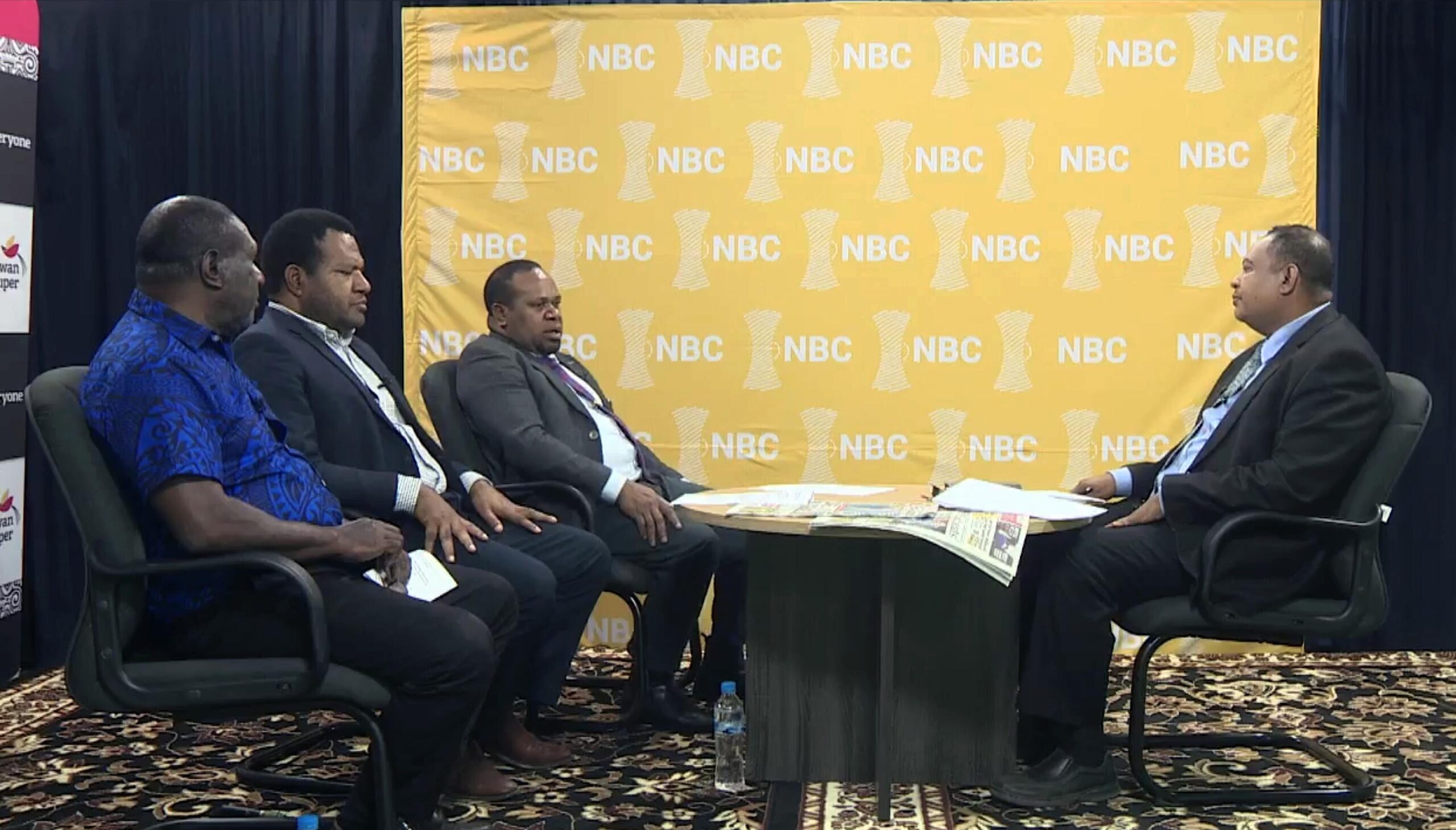Thursday 26th June, 2025
The Department of Works and Highways (DoWH) appeared on NBC Talkback to shed light on the government’s ambitious infrastructure initiatives, particularly focusing on the ConnectPNG programme aimed at linking Papua New Guinea’s provincial capitals through a comprehensive road network.
In a live studio interview, Secretary for the Department of Works and Highways, Mr. Gibson Holemba, alongside Deputy Secretary Highway Management, Mr. Steven Pup, and First Assistant Secretary, Mr. Vitus Koian, provided insights into the department’s role, ongoing projects, and the strategic importance of road development for the nation’s future.
Mr. Holemba, explained the department’s mandate rooted in three key legislations: the Road Act of 2020, the Connect PNG (Funding & Implementation) Act 2021, and the Building Act of 1994.
“Our core responsibility is to develop and maintain civil infrastructure—roads and buildings—that support social and economic development across the country,” he said.
He highlighted that PNG currently manages approximately 13,750 km of national highways, with an additional 21,000 kilometers of sub-national roads, totaling around 35,000 km of road network.
The department aims to expand this to nearly 50,000 km through the Connect PNG initiative.
The ConnectPNG programme is a cornerstone of the government’s broader development strategy, designed to enhance economic growth and social inclusion.
Mr. Holemba emphasized that the programme focuses on constructing “economic corridors” strategic routes that link key economic zones, facilitate investment, and improve access for rural communities.
He explained that the programme targets 16,500 km of critical roads, which include the 5,600 km of the national road network and 1,800 km of missing links.
“It’s important to clarify that ConnectPNG does not cover all roads,” he said.
“It concentrates on key economic arteries that will drive investment and development.”
Deputy Secretary Steven Pup, who has over 25 years of experience and a master’s degree from the UK, underscored the transformative potential of the roads.
“Many rural communities are cut off from essential services,” he said.
“By opening up these corridors, we’re enabling local populations to participate in economic activities like agriculture and tourism, which can significantly reduce poverty.”
Mr. Koya added that the programme offers opportunities beyond infrastructure, including potential for tourism, agriculture, and large-scale plantations, particularly in areas like Alotau and the Western Islands.
The officials discussed the phased approach of the ConnectPNG programme, which is set to run over 20 years with three main phases from 2022 to 2040.
They highlighted the importance of strategic planning, legislation, and sustainable funding to ensure roads are built to last and maintained properly.
On maintenance, the engineers emphasized that water and politics are the two main enemies of durable roads.
They stressed the need for consistent funding for routine maintenance, proper materials, and adherence to engineering standards to prolong the lifespan of roads.
Mr. Pup noted that almost two-thirds of our existing network is in fair or poor condition and called for increased investment in maintenance.
The department aims to recover and upgrade deteriorating roads, with plans to develop a national road network recovery strategy.
As the country approaches its 50th independence anniversary, officials expressed optimism that these infrastructure projects will unlock PNG’s full economic potential and improve the quality of life for its rural populations.
The Department of Works and Highways reiterated its commitment to transparent, strategic, and sustainable infrastructure development, emphasizing that well-maintained roads are vital for economic growth, social inclusion, and national unity.

